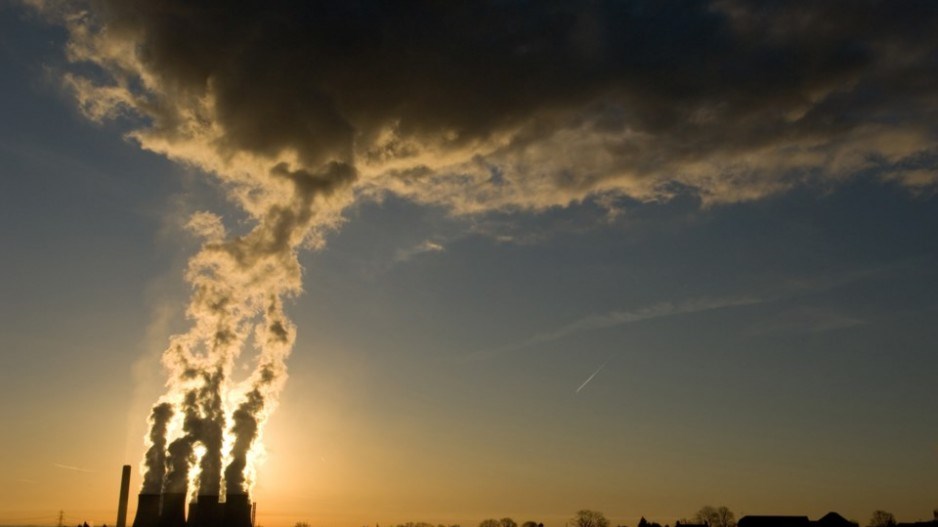As British Columbia’s Lower Mainland experienced disastrous flooding last November and the heatwaves triggered more than 80 forest fires during the past summer in the province, we were reminded that disasters caused by extreme weather events are becoming more destructive.
Following the Canadian government’s strengthened climate plan launched in December 2020, not only have municipalities started to phase out single-use plastics, new B.C. Premier David Eby also includes environmental policies in his just-released 100-day plan for the province, promising to redirect fossil fuel subsidies to clean energy. These measures are important in the development of environmentally and socially responsible solutions.
Building on these initiatives, we worked with the U.S. Consulate General to host Vancouver’s first-ever forum on cleantech IP protection last month. Bringing together specialists from Taiwan, Canada and the United States, we touched upon how countries can cooperate in building up clean technologies, stressed the importance of having measures to curb intellectual property squatting, enhance enforcement remedies for affected companies and reduce loopholes for bad-faith actors such as state-sponsored entities.
It is agreed that the introduction of patent enforcement mechanisms will provide a more stable environment for companies to pursue innovation across national borders. Much like what British Columbia and the rest of Canada are doing, Taiwan is currently embarking on its Pathway to Net-Zero Emissions by 2050, and a key tenet of that plan revolves around driving more research and development opportunities for industries to transition to green energy. The roadmap outlines the Government of Taiwan’s commitment to work with all stakeholders to accelerate the adoption of wind, solar and hydrogen power and roll out energy conservation and efficiency enhancement programs.
Taiwan is well positioned to collaborate with Canada to ensure a secure environment for future generations. As the world’s 21st-largest economy, Taiwan has played an important role in driving innovation across the Indo-Pacific region. Currently, the country’s total trade value ranks 16th in the world and its information and communications technology industry plays a crucial role in not only maintaining global supply chain stability, but also global supply chain sustainability. At present, 20 major Taiwanese enterprises have committed to using 100 percent renewable energy by 2050.
In particular, Taiwanese semiconductor manufacturers occupy a pivotal position in reducing the carbon footprint of international supply chains. Further demonstrating their commitment towards forging a renewable future, eight Taiwanese tech giants in this sector have joined forces to create the Taiwan Climate Partnership (TCP). The TCP seeks to steer the tech industry towards the adoption of low carbon solutions by building a transparent database of corporate carbon emissions, setting an agenda for carbon reduction goals and utilizing digital technologies to increase energy efficiency and low carbon manufacturing.
Taiwan has also led the way in building effective legal frameworks to curb the effects of climate change. Legislators are currently working on amendments to the Greenhouse Gas Reduction and Management Act, which will serve as a basis for a more comprehensive Climate Change Response Act. These amendments will make net-zero emissions by 2050 a long-term national reduction target, improve the effectiveness of climate governance, add a chapter on climate change adaptation, strengthen information disclosure and public participation and introduce carbon pricing mechanisms. In turn, the Act will provide economic incentives for emission reductions, guide low-carbon and green growth, and enhance the role of environmental assessments in everyday governance.
With strong policy, economic and legal frameworks, Taiwan is also ready to play a bigger role in the fight against climate change by participating in the workings of the United Nations Framework Convention on Climate Change (UNFCCC). Unfortunately, Taiwan cannot participate substantively in multilateral discussions on climate change due to the unwarranted objections of one UN member state. This has made it more difficult for Taiwan to stay abreast of current developments, which will create gaps in global climate governance. If Taiwan continues to be blocked from the Paris Agreement, this will make the integration of key Taiwanese industry players into global pollution abatement programs more challenging, affecting the long-term sustainability of international supply chains. Taiwan’s overall competitiveness could be seriously hindered if it is unable to effectively participate in international emission reduction mechanisms. This will ultimately weaken the effectiveness of international cooperation and undermine the global economy.
Making the transition to net-zero emissions is an inescapable collective responsibility of our generation. However, this will only be possible if the international community works together. In the spirit of pragmatism and professionalism, Taiwan is willing to make concrete contributions to curb the effects of global climate change. The COVID-19 pandemic has shown that whatever the situation, Taiwan is fully capable of meeting the moment and weathering extreme challenges. As Taiwan continues to work with like minded partners to drive green innovation, I urge Canada and the international community to support Taiwan’s immediate, fair, and meaningful inclusion in the UNFCCC, the Paris Agreement and associated mechanisms, such as the 27th Session of the Conference of the Parties (COP27) November 6-18 in Egypt. Let Taiwan contribute and give back more to the global vision of net-zero emissions.
Angel Lihsin Liu is director general of the Taipei Economic and Cultural Office in Vancouver.




